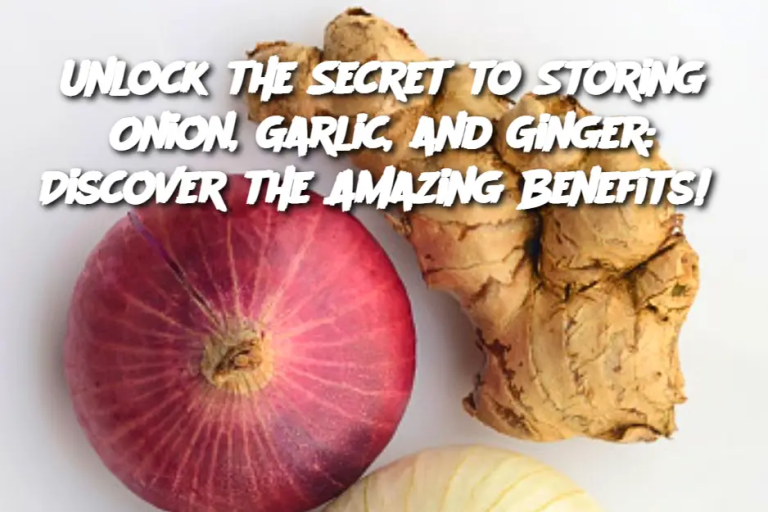ADVERTISEMENT
Onion Varieties: While yellow onions are the most commonly used, you can also use red or white onions depending on the flavor profile you desire. Red onions are slightly milder and can be eaten raw in salads or sandwiches, while white onions are more pungent and great for cooking.
Garlic Variations: You can experiment with different varieties of garlic, such as elephant garlic, which is milder and larger, or aged black garlic, which offers a sweet, savory flavor that pairs well with many dishes.
Ginger Alternatives: In place of fresh ginger, you can use ginger powder or ginger paste. However, fresh ginger will always bring the most robust flavor and health benefits.
FAQ:
Can I store onion, garlic, and ginger in the fridge?
It’s generally not recommended to store onions in the fridge, as they can become soft. Garlic can be refrigerated once the bulb is broken, but it should not be kept in the fridge if it's still whole. Ginger can be refrigerated for a few weeks but is best preserved in the freezer for long-term storage.
How long will properly stored onion, garlic, and ginger last?
When stored properly, onions can last several weeks to a few months in a cool, dry place. Garlic can last 3 to 6 months, depending on storage conditions. Fresh ginger can last up to 3 weeks in the fridge and up to 6 months in the freezer.
What happens if I store garlic in a plastic bag?
Storing garlic in a plastic bag traps moisture, which can encourage mold and sprouting, ultimately shortening the shelf life. Always opt for a well-ventilated storage option.
Can I freeze garlic and ginger?
Yes! Both garlic and ginger can be frozen. Garlic cloves can be frozen whole or chopped, while ginger can be frozen in chunks or grated for easy use.
ADVERTISEMENT
